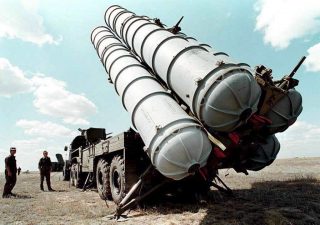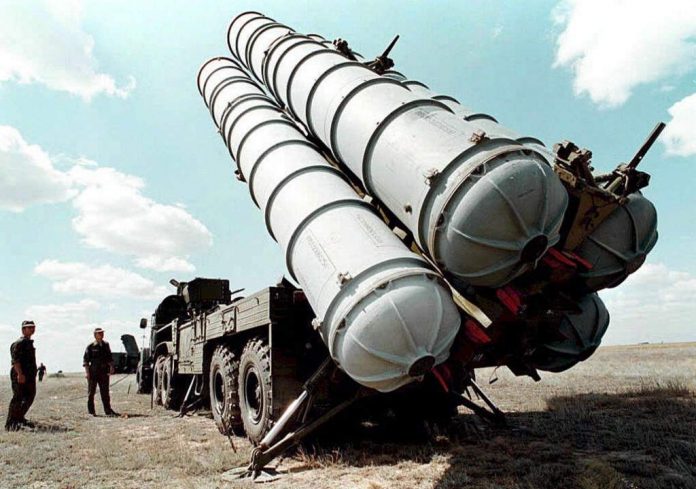… by Nile Bowie, …with New Eastern Outlook, Moscow
The seven golden domes of St. Petersburg
[ Editor’s Note: Nile Bowie brings us a good review of the policy shift in the Obama administration’s move to resolve the Iran nuclear weapons portfolio hoax. Efforts are still in play to keep Iran on a tight leash – one with a colonial smell to it – while seeming to have switched strategy to an economic invasion of Iran by sending Western business, in the hope it will transform the country via a soft glove coup.
But Putin has been Johnny on the Spot to invite Iran into the China and India economic and military defense alliance, a boomerang byproduct of the ill-thought out Western sanctions assault.
Eurasia will come out of this in much stronger shape and be host to the biggest development projects on the planet for the next 25 years, while the US does things like see how many more billions can be whizzed away on the F-35 white elephant. Nothing but “austerity” will be going on in Europe.
There are no mobs in the streets of America calling for heads on pikes for this debacle. The war on the dollar dominance is beginning to look like a game of Russian roulette on our part, where our leaders unfortunately use our heads to play the game, so losing is less painful to them. We have work to do if we are going to survive this, if we deserve to… Jim W. Dean ]
_________________________________
– First published … April 28, 2015 –
 The deal reached in early April between Iran and major world powers represents a high point in negotiations aimed at outlining the future of Iran’s nuclear programme.
The deal reached in early April between Iran and major world powers represents a high point in negotiations aimed at outlining the future of Iran’s nuclear programme.
Both sides have made considerable concessions, while Hassan Rouhani’s government in Tehran has moved a step closer to freeing Iran from almost all economic and financial sanctions, a key goal of his administration.
Though the full details of a comprehensive deal will not be finalized until late June and differences remain on various technical and legal dimensions of the programme, a successful settlement of the nuclear issue could open the door to a new stage in the US-Iran relationship, the effects of which have already begun to slowly reshape the region’s existing strategic order.
Considering the Obama administration’s position toward Iran throughout most of his presidency – characterized by non-engagement and a preference for regime change – the reversal of US policy since the election of Hassan Rouhani begs the question of whether Washington’s moves signal a genuine desire to overcome historical animosities and forge a new kind of relationship.
A Race To Enter Iranian Markets
Economic considerations are undoubtedly one of the key factors motivating a change in US policy toward Iran. The removal of economic sanctions will be a huge boost to the Iranian economy and mutually advantageous for western business interests that view Iran as a largely untapped market with a vast potential for development.
Swiss banks have begun positioning themselves to prospective investors as an alternative to European banks that cannot conduct business with Tehran until sanctions are formally withdrawn. Oil and gas companies, automakers, industrial manufacturers, and global aviation giants such as Airbus and Boeing have the potential to profit enormously.
Iran possesses large oilfields along its border with Iraq, as well as the South Pars offshore gas field in the Gulf along the maritime border with Qatar, one of the largest gas fields in the world. The Rouhani administration’s business-friendly approach, along with Iran’s potential for large oil and gas discoveries and low cost of production, are indications that Iran will resume its position as one of the world’s biggest crude exporters once sanctions are dismantled.
Sanctions have reduced Iranian oil exports by half, from 2.5m barrels a day in 2012 to 1.1m a day. Ordinary Iranians will not immediately feel the benefits of sharp inflows of western money and investment, though a strengthened Iranian economy will lift the national mood and solidify the victory of Iran’s pragmatists, who have secured support from political forces that cautiously endorsed the negotiations, such as the Islamic Revolutionary Guard Corps (IRGC).
While American companies stand to gain from access to Iranian markets, there are clearly more strategic considerations that have motivated the Obama administration’s policy shift toward Tehran to favor diplomacy on the nuclear issue, when previously the position was narrowly reliant on sanctions, non-engagement and the threat of use of force.
_________________________________
Offsetting US Strategic Decline
Washington’s web of contradictory alliances, overt and covert interventions, and attempts to consolidate a pro-American regional order throughout the Middle East have resulted in that region becoming more sectarian and violently unstable than at any point in modern history, while the strategic position of the United States more generally is in decline.
It is in this context that strategic rapprochement between Washington and Tehran has become more advantageous to American interests than a policy of non-engagement and open support for regime change. While there are several areas where the interests of Washington and Tehran align in the present scenario, this strategic confluence does not imply that any US-Iran cooperation on issues outside the nuclear deal would be direct or even coordinated.
The Obama administration sees Iran as a potential tool that it can leverage to protect American interests and investments in Iraq, force Israel into greater restraint and compliance, and reduce dependence on its traditional Gulf ally, Saudi Arabia. However, this would not imply that Washington would scale back its attempts to curtail Iranian influence in areas where it suits US strategic interests, such as through support for anti-Assad militias in Syria and Saudi intervention in Yemen to reinstall a pro-American regime.
The Saudi monarchy feels deeply insecure about US-Iran rapprochement after being kept in the dark about the establishment of diplomatic backchannels between Washington and Tehran, while being subsequently excluded from the nuclear negotiations. Riyadh’s opposition to a Western détente with Tehran is grounded in the fear of competing with an economically dynamic, energy-rich rival, which would reduce its own strategic importance and increase regime vulnerability.
Increased US shale production and Iran’s reentry into global energy markets weakens Riyadh’s leverage with Washington, which is likely beginning to harbor doubts about the long-term durability of the Saudi gerontocracy’s control over the reigns of state power. The Obama administration undertook its policy reversal on Iran because it almost certainly sees the potential for the Saudi monarchy to become a growing liability, an impression that has been spurred on by policy differences with regard to intervention in Syria.
While the United States aided and abetted Saudi Arabia’s export of weapons and radical Salafism to fuel the insurgency against Syrian President Bashar al-Assad, the autonomy of the ISIS group and its expansion into Iraq threatens US interests and energy investments in the semi-autonomous Kurdish region, as well as Saudi national security.
Iran believes that the US is insincere about fighting terrorist groups like ISIS because it has enabled the rise and condoned the conduct of similar groups in Syria – with the goal of containing Iranian influence – before ISIS turned their guns against US and Saudi interests.
Iran is widely seen as the only force capable of defending Iraq from ISIS through its ability to bring together Kurdish troops, the Iraqi Army and the Shiite militias into a coherent force. Iran’s military involvement in Iraq has indirectly protected American interests in Baghdad and Erbil without the US having to deploy troops to engage ISIS in direct combat. In other words, Washington stands to gain by letting Iran clean up the mess created by US-Saudi policies that intended to constrain Iranian influence.
Using Iran To Keep Russia Down
Netanyahu addressing the American Knesset stated that “[Iran] needs this agreement more than you do.” And, his statement was noted by the audience… that there really is not a military threat from Iran. But the US Knesset plodded on with the charade.Israel, like Saudi Arabia, is principally opposed to Iran normalizing diplomatic and business relations with the Western world – not over any fantastic existential threat posed by Iran against the Jewish people – because doing so would shift the regional balance of power and constrain Israeli impunity. Tel Aviv is well aware that a nuclear deal that verifies Tehran’s peaceful compliance serves to erode any justification it could have to launch a military operation against Iran’s nuclear facilities.
The Obama administration is clearly aware that Iran poses no substantial threat to Israel, which maintains an undeclared nuclear arsenal that is entirely unmonitored by the international community. Therefore, the strategic basis of the nuclear deal has more to do with constraining the actions of Benjamin Netanyahu’s government in Tel Aviv, which has notoriously strained relations with the White House, thus allowing Washington to reap the benefits of a strategic rapprochement with Iran.
The US administration is inclined to reverse its policy on Iran to avoid Russia and China displacing American business interests, as they increasingly deepen economic and security relations with Tehran, illustrated by Moscow’s recent decision to lift a ban on the sales of S-300 air defense systems to Iran. It is wishful thinking that a combination of American investments and restraint on Washington’s offers would deter Iran from integrating into a parallel Russian and Chinese-led trade and security architecture.
Washington primarily sees the utility of an Iranian re-entry into energy markets as a factor that will place further downward pressure on global energy prices, driving down Russian energy exports. The US sees the pragmatism of the Rouhani government and its desire to open to the global economy as the most expedient way of keeping Russia down while ensuring the unimpeded flow of oil through the Strait of Hormuz, at a time when the US is reducing its military presence in the region.
As long as the strategic utility of cooperation with Iran remains greater than the strategic utility of hostility, the United States can be expected to cautiously continue on its current trajectory vis-à-vis Tehran.
Nile Bowie Nile Bowie is a political analyst based in Malaysia who has written for a number of publications, his expertise lies in a number of areas, with a particular focus on Asian politics and geopolitics, especially for the online magazine “New Eastern Outlook”.
Editing: Jim W. Dean and Erica P. Wissinger

Jim W. Dean was an active editor on VT from 2010-2022. He was involved in operations, development, and writing, plus an active schedule of TV and radio interviews.
ATTENTION READERS
We See The World From All Sides and Want YOU To Be Fully InformedIn fact, intentional disinformation is a disgraceful scourge in media today. So to assuage any possible errant incorrect information posted herein, we strongly encourage you to seek corroboration from other non-VT sources before forming an educated opinion.
About VT - Policies & Disclosures - Comment Policy






